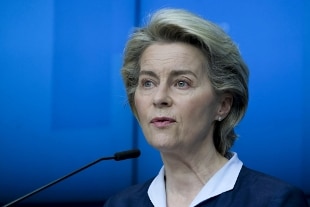Vaccines.
Timmermans, without EU deliveries ready to seize doses
Share
20 March 2021 European Commission President Ursula von der Leyen has threatened to block exports of AstraZeneca's Covid-19 vaccine if the company fails to meet EU deliveries.
"We have the option of blocking planned exports," von der Leyen told German newspaper Funke, "this is the message for AstraZeneca: respect your contract with Europe before starting shipments to other countries."
Von der Leyen said the Anglo-Swedish group delivered only 30% of the 90 million doses agreed for the first quarter.
AstraZeneca explained that the delays are due to production hitches in its factories in Europe but the simultaneous respect of the supplies established for the United Kingdom has provoked the ire of Brussels.
On Wednesday, von der Leyen also threatened to invoke emergency powers to block exports of Covid-19 vaccines from the European Union to ensure "reciprocity" with other exporters.
The target of the controversy is Great Britain, accused of having been able to carry out the vaccination campaign with greater speed than the EU thanks to a de facto blocking of exports of the doses produced on its territory.
The accusation was rejected with disdain by the British Prime Minister, Boris Johnson, while the Foreign Minister of London, Dominic Raab, asked the president of the European Commission for "explanations".
"All options are on the table", reiterated von der Leyen, who announced that the state of the vaccination campaign will be at the top of the agenda of the next European Council, which will take place on 25 and 26 March.
The European Union has already established a special supervision mechanism that requires vaccine suppliers to declare whether they intend to export doses outside the European Union.
The blocking of exports can be initiated at the request of a Member State and must then be approved by the European Commission in order to be activated.
The only precedent, so far, is the blockade implemented by Italy on the export of 250,000 doses directed to Australia on the basis of the "persistent shortage" and "delays in deliveries".
The imposition of vaccine export bans has been criticized by the Netherlands and Belgium, two nations that host AstraZeneca factories, although only the Belgian plant in Seneffe has received the green light for the production of the serum.
The 'Financial Times' revealed in recent days that the Dutch site of Halix, AstraZeneca's contractor, has not yet received the production authorization of the European Medicines Agency (EMA) despite being mentioned in the contract between the group and the European Union.

